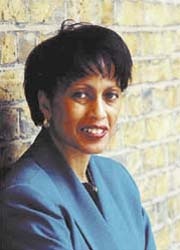Nursing news
UK restricts recruitment of international nurses
Nursing organisations have warned that about 70% of newly qualified nurses cannot find jobs in the UK's National Health Service (NHS).

In August, the British government declared that the NHS has no further need to recruit from overseas.
However, universities have been told that the NHS will be funding between 10–30% fewer places for nurse training. This cut-back has been blamed on the need to offset current, massive NHS deficits, but the plan has led university leaders to warn of a very serious future shortage of nurses – and the need, in the long term, the need to again seek nurses from overseas..
Council opposes armed Middle East conflict
The International Council of Nurses (ICN), based in Geneva, believes nurses have an important role to play in addressing the impact of conflict, including the emergency and long term health needs of refugees, other civilian populations and wounded armed forces personnel, and it demands protection for all health professionals and relief personnel providing care in conflict zones. In a statement, the organisation said: ‘The ICN strongly opposes armed conflict under any circumstances and we urge our member national nurses associations in 129 countries to join us in calling for an immediate cessation of the armed conflict in the Middle East and the rapid deployment of an international peace keeping force.
2006 Human Rights and Nursing Awards
Gaza - Five nurses from The St John Ophthalmic Outpatient Clinic and Cataract Day Case Surgical Centre, in Gaza, have been awarded the 2006 Human Rights and Nursing Awards in recognition of their extraordinary work in difficult circumstances to ensure that the people of the Gaza Strip receive ophthalmic nursing and cataract surgery of the highest possible standard.
The awards were announced at the 2006 Globalisation of Nursing: ethical, legal and political conference, held at the University of Surrey.
The nurses, Hanan Zaalan, Fouad Najjar, Ghazi El Baba, Mohamed Barakat and Abdallah El Baba, could not be at the conference. Their award was received on their behalf by Jackie Jaidy, of the St John Eye Hospital, Jerusalem, of which the Gaza-based clinic is an outpost. She said they had been given the award because they had continued to work under great duress and great restrictions to both their daily and working lives.’
Presenting the awards, Professor Anne Davis, International President of the International Centre for Nursing Ethics, valued at $3,000, congratulated the nurses on their determination to continue to provide nursing care to the Gaza’s population, despite difficulties in sourcing equipment, and in some cases even reaching the clinic.
Dr Verena Tschudin, Director of ICNE, said: ‘Nowadays, it is impossible to do almost anything without considering the ethics of it. This is particularly true in nursing, which is more than just a job; it is also a moral endeavour. Therefore, morality and ethics are a large part of any nursing role and should be recognised as such.’
The awards – This unique nursing award is given in recognition of any nurse’s outstanding commitment to human rights and exemplifies the essence of nursing’s philosophy of humanity. Nominations are open to all nurse practitioners. The winners are chosen by an international committee.
Previous award winners include: Sister Grace Kodiyan (India) for dedicating her life to the poorest of poor people in Bihar; Fidelis Mudimu (Zimbabwe) for providing medical and psychological rehabilitation for victims of organised violence and torture; Karla Schefter (Germany) for founding and running a hospital in Afghanistan; Glenda Wildschut (South Africa) for resettling people after the Rwanda massacre; Christine Schmitz (Germany) for her work with Médecins sans Frontières; Cathy Crowe (Canada) for her work as a ‘street nurse’ caring for homeless people; and Mpho Motlehasadi-Sebanyoni (South Africa) for founding a hospice community for people suffering HIV/AIDS.
University honours influential American nurse
The University of Salford is to present an honorary award to The General Secretary of the Royal College of Nursing (RCN), Dr Beverley Malone received an honorary award from Salford University, in July, in recognition of her ‘inspirational role as a successful black nurse. The award follows the naming of the University’s new £22m Mary Seacole Building for the Faculty of Health & Social Care, after the famous black nurse working in Britain during Queen Victoria’s reign.
Dr Malone, who was brought up in the southern states of the USA, became the head of the American Nursing Association before moving to the Whitehouse, in Washington DC . In 2000 she was named as one of the top 100 influential black Americans.
She arrived in Britain in 2001, after leaving her position within the Clinton administration. She became the first non-British General Secretary of the RCN - appointed for her renowned negotiating and public speaking skills. Dr Malone has spearheaded the RCN’s drive for more nursing pay and initiatives to make hospitals safer and cleaner.
Jill Wild, Head of Salford University’s School of Nursing, described Dr Malone’s ‘…outstanding leadership qualities and dedication to the nursing profession’ as ‘…an excellent example to staff and students’.
Health & safety rules hamper aid workers
Another aspect of the Israel-Lebanon conflict is that health and safety rules could hamper the work of British international aid agencies, as well as supplies to devastated zones. Numerous safety rules have been imposed since September 11, by agencies such as Christian Aid, Oxfam, and Save the Children. The rulings include having to make detailed danger assessments prior to journeys into conflict zones, as well as hiring professional security officers for protection, who can decide whether a trip is too hazardous to undertake. This decision had, in the past, been one that the aid workers themselves undertook.
Such rulings have not been imposed on humanitarian workers from various other European countries, such as Belgium and Spain, which entered bombed areas in southern Lebanon within days of the war.
Part of the reason for these more stringent health and safety rulings are thought to be the fact that, recently more aid workers have been targeted and killed in Afghanistan and Iraq. In addition, aid agencies were concerned that, in the Israel-Lebanon crisis, the Israeli government did not establish a humanitarian corridor through which relief workers could pass in safety.
International agreements urged for the human right to healthcare
Following their July conference on ‘The Globalisation of Nursing’ and organised by the International Centre for Nursing Ethics, based in the University of Surrey, UK, the following statement was issued:
’As nurses and nurse educators from 20 countries, we have spent two intensive days examining the impact of globalisation on health and healthcare. Millions of nurses throughout the world have the especially responsible position of frontline workers and professionals, caring for and preventing human suffering. We take our social responsibility seriously. We are concerned that the delay and neglect of key international agreements will exacerbate the growing global healthcare crisis and undermine the sustainability of nursing itself. We therefore call on our national governments and the relevant international organisations fully, diligently and urgently to respect, implement and enhance the international agreements on the human right to healthcare, on economic justice and on the mitigation of climate change.’
30.08.2006





